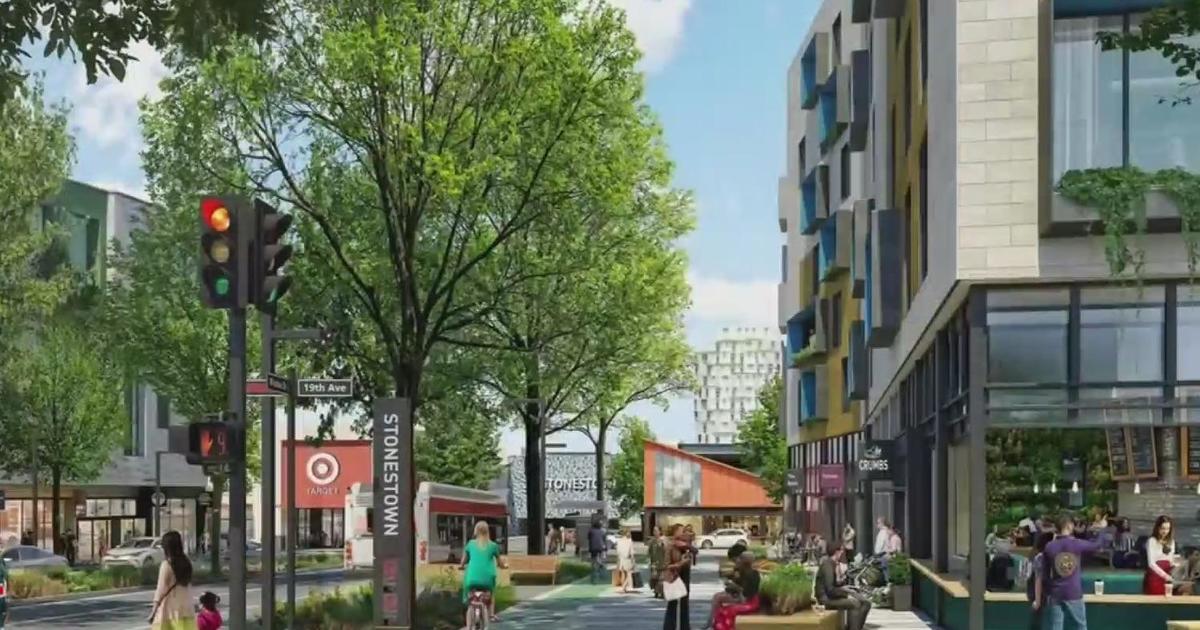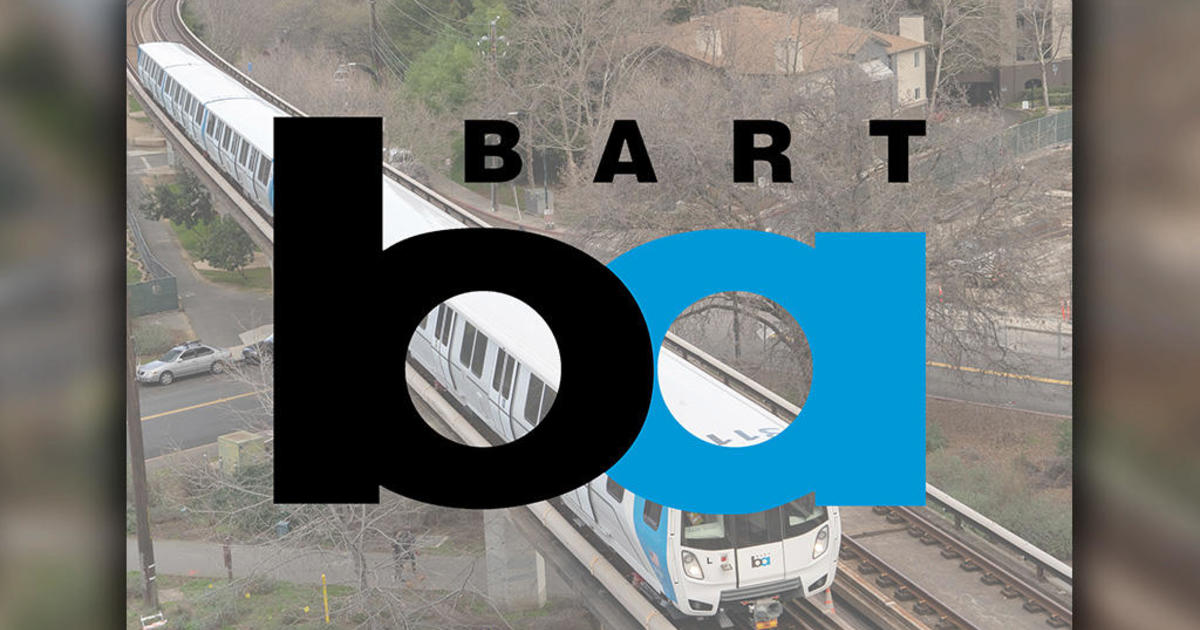Dozens Say Taxpayer-Funded Housing Program Isn't Working
BERKELEY (KPIX 5) -- Bay Area Community Services (BACS) is the largest housing solutions program in the Bay Area and it's largely funded by tens of millions of taxpayer dollars. BACS promises 75% success rates to house the homeless. But dozens of people say they're back out on the street because of BACS.
"All I needed was a little help, that's all," said Arika Miles. After four years of living on the street, the homeless woman finally felt hopeful when counselors at the STAIR navigation center in Berkeley found her permanent housing.
WATCH: CBSN BAY AREA – KPIX 5 24/7 Digital News Channel
"They were going to pay our rent for six months, which is plenty of time for someone to go back to work get on their feet," she said.
But when she got to the address in Richmond, that hope faded. Her permanent home was a garage.
"Every time I had to go to the bathroom or cook breakfast or dinner, I had to go in, unlock the door," said Miles.
She says her rent was $1,500 a month, paid for with public money awarded to the nonprofit that runs Berkeley's navigation center: BACS.
When Miles complained, a building department inspector came out and found "no access to a restroom, black mold, nails sticking out of the walls, no electrical and a rat infestation." The garage was ordered shut down and Miles is back on the street.
"I think it's horrible, that is not right! Billions and billions of dollars donated to get us off the streets to get us permanent housing. So what is going on?" Miles said.
James Cartmill's permanent placement through the STAIR program isn't working out either. "It's not a permanent situation, it's continued turmoil," he said.
BACS placed him and his wife in a small room in San Leandro house along with six other tenants and a live-in host. Taxpayer money given to BACS paid this bill, too.
According to Cartmill's contract, the money goes to a company called Second Chance at Life Independent Living. At last check, it's not licensed to do business in San Leandro. Cartmill says he can't even use the living room because there are people sleeping in it. He says he's not even allowed to cook.
Cartmill had it out with his landlady. A Facebook post shows her grabbing his breakfast. Shortly after, he received an eviction notice; he has to be out by year's end.
"It has caused more stress than living on the street and dealing with the cops," said Cartmill.
Then there's a homeless senior who asked KPIX not to use her name or show her face. "Somebody has to be held accountable for this," she said. BACS placed her in a room in a Stockton house for $850 a month. "That is absolutely ludicrous for anyone to even spend that type of money when they can find themselves a studio, especially out here in Stockton," she said.
She's right. KPIX looked on Zillow and found plenty of studios for about the same price. Once again, taxpayers paid the $850 a month there as well--that is, until a fire damaged the house.
The woman says that's when her BACS counselor offered her a new placement in a halfway house for men in Berkeley. "Men who have been incarcerated and are out finishing their sentencing. What do I look like as a female? So now I am back to square one. So I am going to be sleeping in my car," she said.
BACS was awarded nearly $5 million from the City of Berkeley to run the STAIR program through 2020, with part of that money going to housing subsidies. In its contract with the city, the nonprofit promises to meet a 75% success rate for placing homeless clients into permanent housing, something people on the street say is highly unlikely, if not impossible.
"They are just working the numbers, get these people in, let's show how good we are doing," said Michael Zint, founder of First They Came for the Homeless, a self-run, drug free homeless camp in Berkeley. As an activist, he hears from people on the street every day who tell him permanent housing is anything but.
"These people don't need a palace. What they need is their own space. They need privacy, security, able to come and go as they please. Instead, they are being shuffled into the first opportunity available so somebody can check their name off a list of being homeless. That is not a solution. These people are going to end up back on the streets at some time," said Zint.
BACS' supposed success rates are inconsistent. It promised a 75% success rate to Berkeley for the STAIR program, but in its sales pitch for another navigation center in Fremont, BACS boasted an 82% success rate for the same program.
The City of Berkeley claims only around 64% of STAIR clients were permanently housed and 22% of that group fell back into homelessness, meaning the success rate reported by Berkeley was actually only 50%. Zint says he thinks even that number is likely inflated to win more municipal contracts.
"It's a game so they can go on TV and say, 'Look how successful we're being, we need to expand this,'" said Zint.
BACS is growing rapidly. The nonprofit's tax filings are broken into a services arm and a housing arm. Total revenue on the services side grew from $13 million in fiscal 2016 to $22 million in 2018.
And as BACS acquires more property, its assets have grown from $530,000 in 2015 to nearly $15 million in 2018.
For several weeks now, KPIX has asked the city of Berkeley to sit down with us, explain the numbers and explain how clients like Miles were placed in sub-standard locations only to end up back on the street.
They declined our request. BACS did, too.
Miles hopes her story and others' will wake the city up to what's really going on.
"This should not have happened to me, it ruined me even worse than what I was before," said Miles. "I am not going anywhere until they fix what they did. And not do it anymore, not do it to us. We are people," she said.
After Miles' story was brought to the attention of BACS, we found out over the weekend that she has been placed in a hotel.
Meanwhile, we've talked to nearly two dozen current BACS clients in Oakland. They say the permanent housing isn't sticking there either. They are all organizing and demanding that the cities of Berkeley and Oakland audit BACS to determine that funds are being adequately spent.
Below is a complete statement from BACS:
"BACS' mission is to do whatever it takes to uplift our community members. BACS has worked and will continue to work with the most vulnerable, hardest-to-serve people – and we will do whatever we can to successfully house them – whether it takes one, two, or three times to find the right housing.
BACS holds client privacy and confidentiality sacred, and we cannot confirm or deny that we have worked with anyone you interview, nor comment on the experiences they shared on camera. What we can say is that our work is voluntary, for both staff and for clients, and that we care about the individual people succeeding. We are constantly finding an array of housing options, and when we show an option to a client and they choose to decline it, that is not their only chance to get housed. If an individual declines that housing option, we will work to find another, and another, and another. All the housing options we locate meet basic standards of quality, safety, and have an affordability plan for each individual based on their income and/or plans for increased income – and we have documentation that demonstrates each of these criteria for each client we serve.
We work with clients who may have severe addictions, mental health challenges, or lack the necessary skills to maintain their first housing option. When someone we work with loses their housing, we are here to help with the next step, the next housing placement – so long as individuals want to re-engage with us to keep pursuing permanent housing. We are committed to our mission to stop people from sleeping outside, and we will continue to dedicate all of our time and resources to supporting our community members in need."
Statement from Berkeley Mayor Jesse Arreguin:
"We take any allegation very seriously. However, the City has not been provided with documentation to substantiate recent claims. We have not found any evidence to prove that these claims are warranted. In regards to specific clients, we cannot release such information as it is confidential and might imperil their ability to get housed. Everyone deserves the right to safe and dignified shelter, and I have confidence in BACS' ability to provide that. It's essential to have providers to help find housing that's affordable for unhoused people in this extreme housing crisis.
The STAIR Center has proven to be a successful model in addressing our homeless crisis, helping over 100 people find housing in the first year in operation. The Center has proven to be so effective that other cities such as Fremont and Hayward are developing their own navigation centers based on our model. No one tool, policy or program can solve all issues related to homelessness, which requires a regional and statewide approach to this issue affecting our state. We will continue to prioritize initiatives to lift up people who are unhoused into housing."



